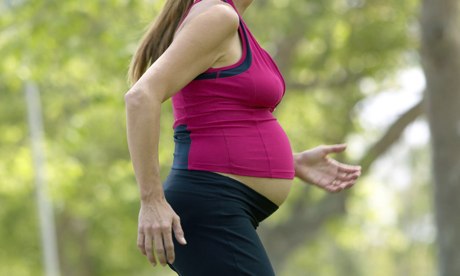
Women who exercise in pregnancy boost the brain development of their newborn babies, according to researchers who claim the effect could benefit children for the rest of their lives.
Babies' brains showed more mature patterns of activity, linked to better mental performance in later life, when their mothers took at least three 20-minute sessions of moderate exercise a week.
The early stage findings are the first from a randomised controlled trial in humans to show that a pregnant mother's exercise routine could have such an impact on her baby's brain.
"We know exercise is good for all kinds of things in pregnancy. It makes mothers feel better, gives them more control over their weight gain, and also has an impact on their child's weight gain in life. We're saying here's an added bonus, that exercise gives your child a head-start in brain development," said Elise Labonte-LeMoyne at the University of Montreal.
Women joined the study in their first trimester and were randomly assigned to either an exercise or a sedentary control group. The 10 women in the exercise group cycled, walked, ran or swam for three short sessions a week, pushing themselves hard enough to get only slightly out of breath. The eight women in the sedentary group were told not to exercise.
In the eight to 12 days after the babies were born, the researchers measured their brain activity. Using a hairnet of 124 electrodes, they recorded electroencephalograms (EEG) while they played sleeping babies a series of beeps interspersed with different sounds. Even though the babies were asleep, patterns in their brain activity showed how efficiently they could discriminate between old and novel sounds. More developed brains find the task easier than less mature ones.
"The babies born from mothers who were physically active have a more mature cerebral activation, suggesting that their brains developed more rapidly," said Labonte-LeMoyne, who described the study at the Society for Neuroscience meeting in San Diego.
"This is important to look at at this stage in their development, because the ability to discriminate sounds is the basis of learning to speak and to understand the sounds around you," she said.
A 2008 Danish study found that exercising had almost no effect on the size of a woman's baby, but reduced the risk of the baby being small or large for its gestational age.
The NHS advises pregnant women to avoid contact sports, and not exercise so hard that they cannot hold a conversation. Women who were not active before becoming pregnant should start with no more than 15 minutes of continuous exercise three times a week, and slowly build up to four half-hour sessions a week.

